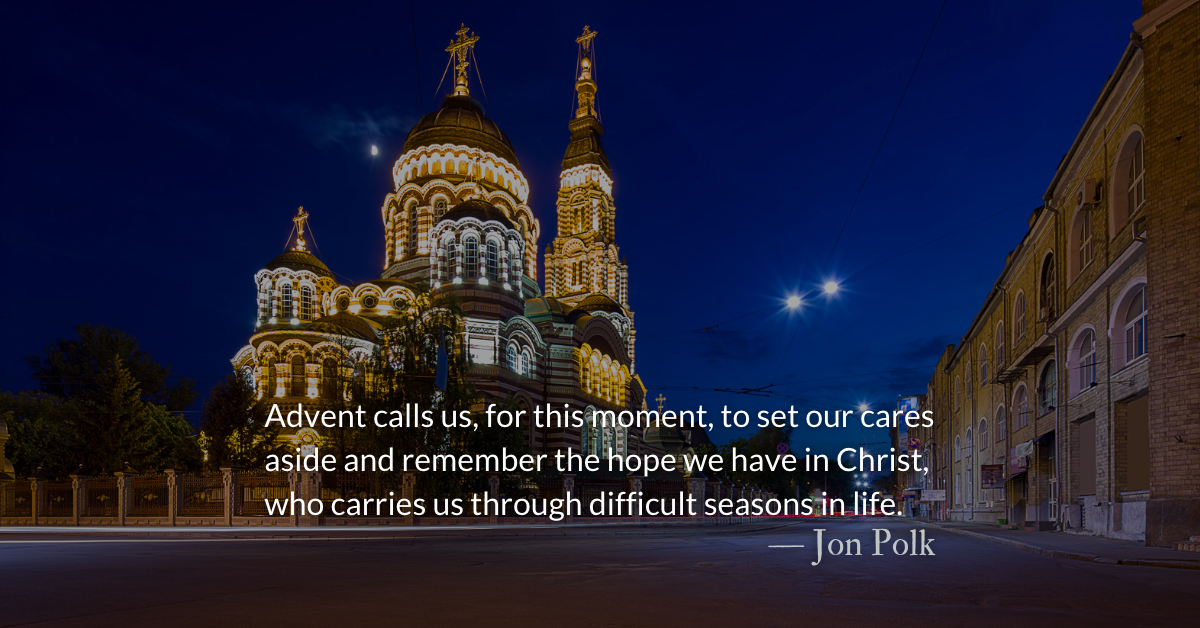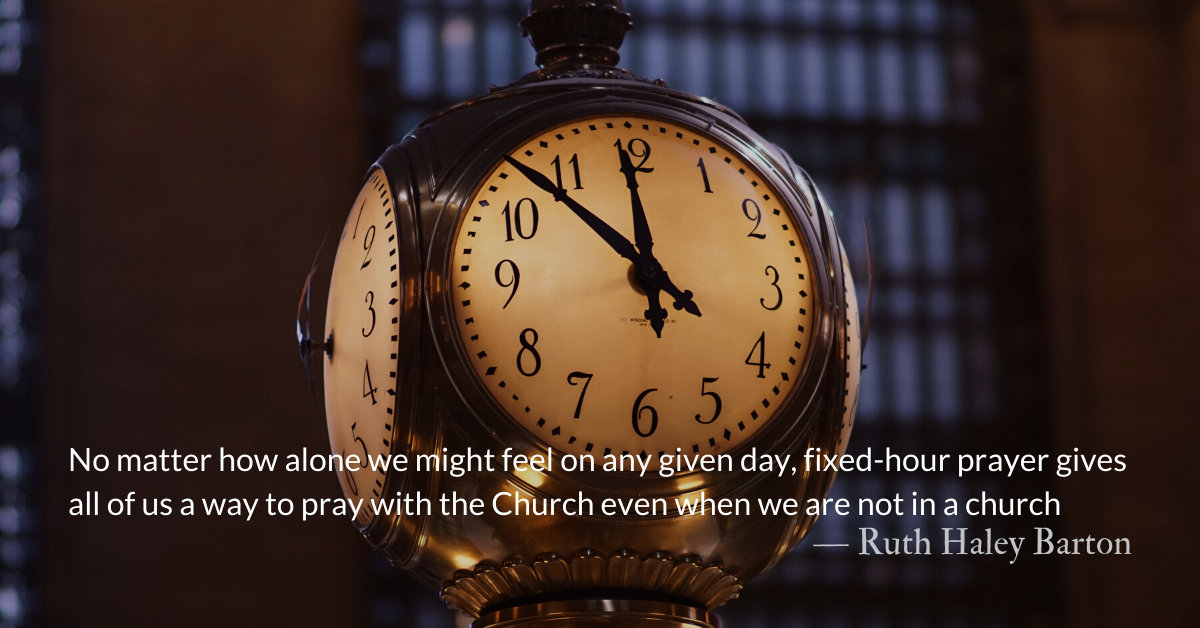Scripture Focus: Hebrews 13:15-16
15 Through Jesus, therefore, let us continually offer to God a sacrifice of praise—the fruit of lips that openly profess his name. 16 And do not forget to do good and to share with others, for with such sacrifices God is pleased.
Luke 2:10-11
10 But the angel said to them, “Do not be afraid. I bring you good news that will cause great joy for all the people. 11 Today in the town of David a Savior has been born to you; he is the Messiah, the Lord.”
Psalm 150:3-6
3 Praise him with the sounding of the trumpet,
praise him with the harp and lyre,
4 praise him with timbrel and dancing,
praise him with the strings and pipe,
5 praise him with the clash of cymbals,
praise him with resounding cymbals.
6 Let everything that has breath praise the Lord.
Praise the Lord.
Image: Today’s image is a picture of Blagoveshchensky Cathedral in Kharkiv, Ukraine.
Reflection: Carol of the Bells — Carols of Advent Hope
By Jon Polk
Perhaps recognized less for its lyrics and more for its chime-like melody in three-quarter time, the rhythmic “Carol of the Bells” provides the perfect accompaniment for the holiday season.
Hark how the bells,
sweet silver bells,
all seem to say,
throw cares away
Christmas is here,
bringing good cheer,
to young and old,
meek and the bold.
While now indelibly connected with Christmas, the origins of this carol trace back to a Ukrainian folk song written for New Year celebrations.
The conductor of the Ukrainian Republic Choir commissioned Mykola Leontovych to write a new piece based on traditional folk songs. Leontovych was a composer, conductor and music teacher, but he was also educated as a priest in a Ukrainian seminary and composed the first liturgy in the modern Ukrainian language.
Leontovych wrote “Shchedryk” (“Bountiful Evening”) in 1914 and it was first performed in 1916 by students from Kyiv University. The song, also known by the English title “The Little Swallow,” tells the tale of a swallow who flies into a home, singing a prediction of a bountiful and wonderful year ahead for the family inside.
Bountiful evening, bountiful evening, a New Year’s carol;
A little swallow flew into the household
and started to twitter,
to summon the master:
“Come out, come out, O master,
Your goods [livestock] are great,
you will have a lot of money, by selling them.
If not money, then chaff from all the grain you will harvest
you have a dark-eyebrowed beautiful wife.”
As you can tell, although “Shchedryk” and “Carol of the Bells” may share the same melody, their lyrics are not at all the same.
Leontovych’s song was written during a time of intense political and social turmoil in Ukraine during World War I. In fact, Leontovych himself was killed by a Russian agent in 1921 and he is considered a martyr by the Eastern Orthodox Church in Ukraine. The swallow was a herald of springtime and its presence in the song would have given listeners hope for better days ahead in the New Year.
When “Shchedryk” was performed by the Ukrainian National Choir in the United States in 1919, American choir conductor Peter Wilhousky, himself of Ukrainian descent, thought the song sounded like handbells ringing. Wilhousky eventually wrote new lyrics and performed his version, focused on Christmas, with the NBC radio orchestra during the Great Depression. Once again, the carol lifted the spirits of listeners during a challenging and difficult time.
Advent calls us, for this moment, to set our cares aside and remember the hope we have in Christ, who carries us through difficult seasons in life. May our hearts be stirred to worship the One who truly brings us hope.
Listen: Carol of the Bells by Fleming & John
Listen: Shchedryk (Ukrainian and English Translation) by Eileen
Read: English Lyrics from LyricsForChristmas.com
Read: Ukrainian Lyrics (with translation) from Wikipedia.org
From John: As the conflict in Ukraine enters its tenth month, please continue to pray. A fellow seminarian Jon and I served with was in Ukraine just before war broke out. Although she is back in the states, the ministry team she served continues their work from Poland, doing what they can to spare and save lives, to provide for refugees, and to spread the gospel as they minister. Pray for their safety as they frequently enter the country to assist those evacuating or to deliver supplies. Pray for the end of the conflict and that people can return to rebuild their lives, cities, and churches.
Divine Hours Prayer: The Request for Presence
Show me your marvelous loving-kindness, O Savior of those who take refuge at your right hand from those who rise up against them.
Keep me as the apple of your eye; hide me under the shadow of your wings. — Psalm 17.7-8
Today’s Readings
Esther 3 (Listen 3:12)
Hebrews 13 (Listen 3:31)
Read more about Supporting Our Work
Give to support biblical literacy, rhythmic Bible reading and prayer, and gospel-centered discipleship.
Read more about Facts and Harsh Realities
The pastors and churches they support in Eastern Ukraine are in real, tangible danger…harsh realities surround them.









